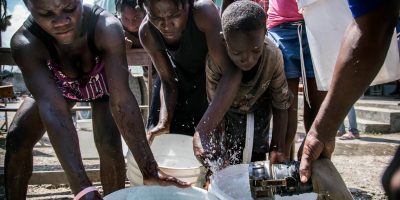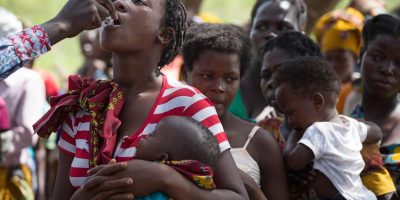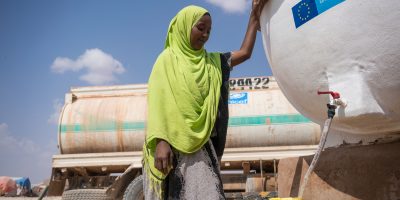Search
Search within Cholera
27 results found
Briefing
Key Considerations: Child Engagement in the Context of Disease Outbreaks in Eastern and Southern Africa
Effective child engagement strategies are essential to optimise the response to disease outbreaks and minimise their impact while ensuring children’s protection, well-being and resilience. When children understand disease outbreaks, they are better able to cope, contribute and recover. This promotes…
Briefing
Key Considerations: Social, Structural and Community Dynamics of Cholera Transmission and Mortality in Ethiopia
The current cholera outbreak in the Federal Democratic Republic of Ethiopia began in August 2022. As of April 2024, active outbreaks had been recorded in most regions of the country, including: Amhara; Dire Dawa; Harari; Oromia; Southern Nations, Nationalities and…
Briefing
Information Preparedness and Community Engagement for El Niño in the Eastern and Southern Africa Region frptes
El Niño can be viewed as a multi-hazard event, and considerations for information needs cut across different populations and risks, including direct weather-related hazards, reduced agricultural production, greater food insecurity and malnutrition, increased transmission of infectious diseases and effects on…
Briefings
Guidance Note on Community Engagement for Cholera Outbreak Response in the East and Southern Africa Region
The purpose of this guidance note is to support Ministries of Health, UNICEF, and other response partners to design and implement effective, community-centred, and data-driven community engagement for cholera outbreak response.
Tools
Cholera Questions Bank
These resources are intended to support operational social science research to be used in cholera preparedness and response activities.
Report
WHO Multi-country outbreak of cholera, External situation report #1
This report summarises the current status of the cholera outbreak across 24 countries that are reporting cases. WHO has assessed the global risk level as very high.
Briefings
Key Considerations: Socio-Behavioural Insight For Community-Centred Cholera Preparedness And Response In Mozambique, 2023
This brief explores socio-behavioural determinants including local knowledge, perceptions, practices, and structural factors influencing cholera transmission dynamics. The brief has been developed to support response actors develop prevention and control strategies to rapidly contain the outbreak and prepare for a…
Briefing
Social, Behavioural and Community Dynamics Related to the Cholera Outbreak in Malawi
This brief is a rapid synthesis of socio-behavioural evidence relating to the 2022 cholera outbreak in Malawi intended for national and international response partners.
Journal Article
Identifying transferable lessons from cholera epidemic responses by Médecins Sans Frontières in Mozambique, Malawi and the Democratic Republic of Congo, 2015–2018: a scoping review
Cholera epidemics occur frequently in low-income countries affected by concurrent humanitarian crises. Evaluations of these epidemic responses remains largely unpublished and there is a need to generate evidence on response efforts to inform future programmes. This review of MSF cholera…

Case Studies
Participation with a Cholera-Exposed Population in Haiti: Finding their Own Solutions
Case study looking at the challenge of cholera in Haiti

Evidence Reviews
Health-Seeking Behaviours in Sofala and Manica in Relation to Cyclone Idai Response
Rapid review question: What are the health-seeking and nutritional practices of the affected populations? How do they frame, understand and engage in prevention of cholera/AWD, malaria, measles/rubella (or vaccine preventable diseases); infant and child feeding and other relevant diseases? What…

Briefings
Guidance Note 1: Contextual Factors and Risks to Cholera/AWD Transmission in Somalia and the Somali Region of Ethiopia
The purpose of this guidance note is to support UNICEF staff in understanding the contextual factors (the practices, behaviours, social norms and wider factors) that shape risks of cholera transmission, being able to separate the social and cultural factors from…


